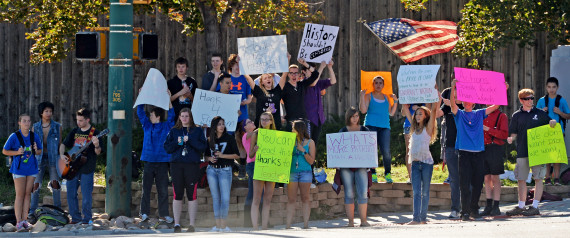
Education serves a daily purpose in the lives of countless students, shaping our perspective, expanding our openness to what’s different, and equipping people with the tools they need to think for themselves. That’s why education is a hard issue to politicize. No one stands to win advocating for less education, a less informed population, and a less involved citizenry.
However, efforts to dramatically alter Advanced Placement United States History (APUSH) have been pursued in several states, all predicated on a simple reason: the class fails to teach “American exceptionalism.” Process that for a second. Every single citizen should be alarmed at the blatant push to scrap APUSH; whether it be defunding, rewriting, or eliminating the course, one thing remains clear: bills can be amended, history can’t.
The controversy started when the College Board announced it was undergoing a redesign of several courses, including APUSH. The key change was that ideas and themes would be developed and connected throughout the course, and more importantly the redesign, according to the college board, “ clearly specifies what will be assessed.”
Nonetheless, the evolution of the course has angered some states into taking action that would counter the changes of the revamped system. The Oklahoma House Committee of Common Education recently approved of a bill that would strip the College Board course of all its funding, passing 11-4 along party lines, with the Republicans in the majority and the Democrats in the minority. In Golden, Colorado, the Jefferson County Board of Education plans to establish a committee that will scrutinize APUSH. The Texas State Board of Education, in a vote of 8-4, issued a resolution that request that the College Board review the redesigned course. The Republican National Committee affirmed a resolution that expressed concern over the redesign, stating it “reflected a radically revisionist view of American history.” The majority of these efforts have been inspired by a similar idea: the new course highlights the negative parts of our history, while either omitting or minimizing all the positive marks throughout.
“To me, it’s balanced. It’s a complicated thing. I dismiss the idea that this is all about the negative,” remarked Ms. Kristi Robertson, who teaches APUSH at Libertyville High School. “Forced patriotism, like forced religion, usually is counter productive to the original intent. If you’re trying to force our young people to be patriotic by eliminating things that they learn about like negatives, I think that’s counterproductive in the end.”
Protests and outcry have erupted in the states that have tried to curtail students’ access to the class, pointing out the economic backlash that would be inflicted on the students who would be denied the college credit. Having to take the class in college, they would be forced to endure a heavier financial cost, which, to a lot of families, would be crippling.
“They’re depriving students of the opportunity to learn about history the way it should be taught. It also hurts students because then they’re not eligible for the AP credit, and it negatively impacts them financially because they have to take the course [in college],” stated Cynthia Capote, a junior at LHS who takes the course.
Taking the facts into account, individuals can’t fail to recognize the overwhelming truth: the United States has a rich history of standing up for what is right, but at times it’s also fallen short of the vision we all aspire for our nation. The journey of America isn’t constrained to just one aspect of our history; it can’t be separated into the good and the bad, the successes and the failures. They’re all connected, interwoven throughout our history.
Is it shameful that we mistreated African-Americans through the barbaric practice of slavery? Yes. Is it despicable that we placed countless of Japanese-Americans in internment camps during WWII? Yes. But we improved, we progressed, we changed together for the better, despite the hardships of a Civil War and the fight for civil rights, the country proved it could evolve and make meaningful strives for what is right. The good and bad can’t be distinguished into two different camps, because it’s through the bad that we fight for the good, and it’s through the good we remember the bad.











